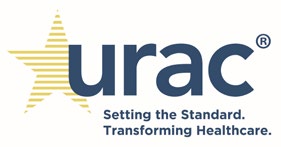Fair IDR: The Way Forward To Protect Patients & Resolve Surprise Medical Bill Disputes
 |
 |
Fair IDR: The Way Forward To Protect Patients & Resolve Surprise Medical Bill Disputes
Protecting patients from surprise medical bills is a national concern.1 The stories of financial hardship placed on patients from surprise medical bills, whether due to lack of coordination in our health care delivery system or misaligned billing practices of health care organizations, are well told. In fact, over 57% of American adults have received at least one surprise medical bill.2
Congress is considering legislation to protect patients against such bills. In 2019 alone, at least 11 bills were introduced in Congress to address the issue, most of which include a formal independent dispute resolution (IDR) process.3 We urge Congress to adopt a solution that includes a fair IDR process to ensure that both providers and payors are treated equally when IDR is used to decide surprise medical bill disputes.
We believe:
- Congress should support a fair IDR process by accredited independent review organizations (IROs) as a solution to remove patients from surprise medical bill disputes. This IDR process is only used if a payor and provider cannot settle on a payment rate.
- Congress should create an IDR process that includes a clinical review and should not rely on a narrow legal arbitration model.
- Congress should not restrict a neutral reviewer’s ability to consider reasonable factors, including provider and payor rates, customary out-of-network rates, and the appropriateness of medical care.
- Congress should not establish national priorities of factors for determining a rate via the IDR process that eliminates the unique nature of local markets.
This approach builds on existing federal and state quality structures currently in place to protect patients. New York, New Jersey, Florida, Illinois, Texas, and Washington have all found success using a fair IDR arbitration model. New York in particular, as the nation’s first state to systematically address surprise billing, has seen value in their IDR process because the law mandates that the IRO must rule in favor of the provider or payor in a binding decision. This provision encourages parties to negotiate in good faith and reach a settlement.
URAC and NAIRO support bipartisan efforts to address surprise medical bills as it is an important step to improve America’s health care system.
An independent dispute resolution process by accredited IROs as a solution to remove patients from surprise medical bills disputes can be fair and effective.
Resolving surprise medical bill disputes through IDR removes the patient from the process. With the patient protected, health care insurers and providers deserve an independent, qualified payment determination; accredited IROs are uniquely qualified to decide these cases. Several key benefits of this model are the quality and track record of accredited IROs, efficient and unbiased processes, and consideration of health care complexities.
Benefits of Accredited IROs
| Accredited IROs ensure quality & have a proven track record | Accredited IROs are efficient, transparent, & unbiased | Accredited IROs understand & consider health care complexities | ||
|
|
|
Congress should create an arbitration process that includes a clinical review and not establish criteria limiting or prioritizing the information an IDR entity considers to determine a fair rate.
For IDR to work properly, it must be fair and unbiased. Since the health care system and services are complex, an IDR based on all relevant information should be used to resolve surprise medical bill disputes. A fair and unbiased process allows both parties to submit any information they deem relevant and allows the IDR entity to consider all information. An IRO has the capacity to use highly qualified and specialized clinical and coding experts. This expertise allows IROs to take a comprehensive view of the medical necessity of the care as part of its financial review. This ensures payment is rendered for clinically appropriate services. Moreover, given the unique nature of local health care markets coupled with the expertise and capacity of IROs, Congress should not establish criteria limiting or prioritizing the information required for a rate decision.
Key Characteristics of a Fair & Unbiased IDR Process
| Both parties can submit all information | IROs consider all information | |
|
|
1Surprise medical bills occur when a private insurer does not pay or negotiate a medical bill with an out-of-network health care service provider primarily for emergency and unscheduled services.
2NORC. 2018. “New Survey Reveals 57% of Americans Have Been Surprised by a Medical Bill.”
3Cousart, Christina. 2019. “States Lead on Surprise Medical Billing Protections, Congress Poised to Follow.” National Academy for State Health Policy. December 17.

